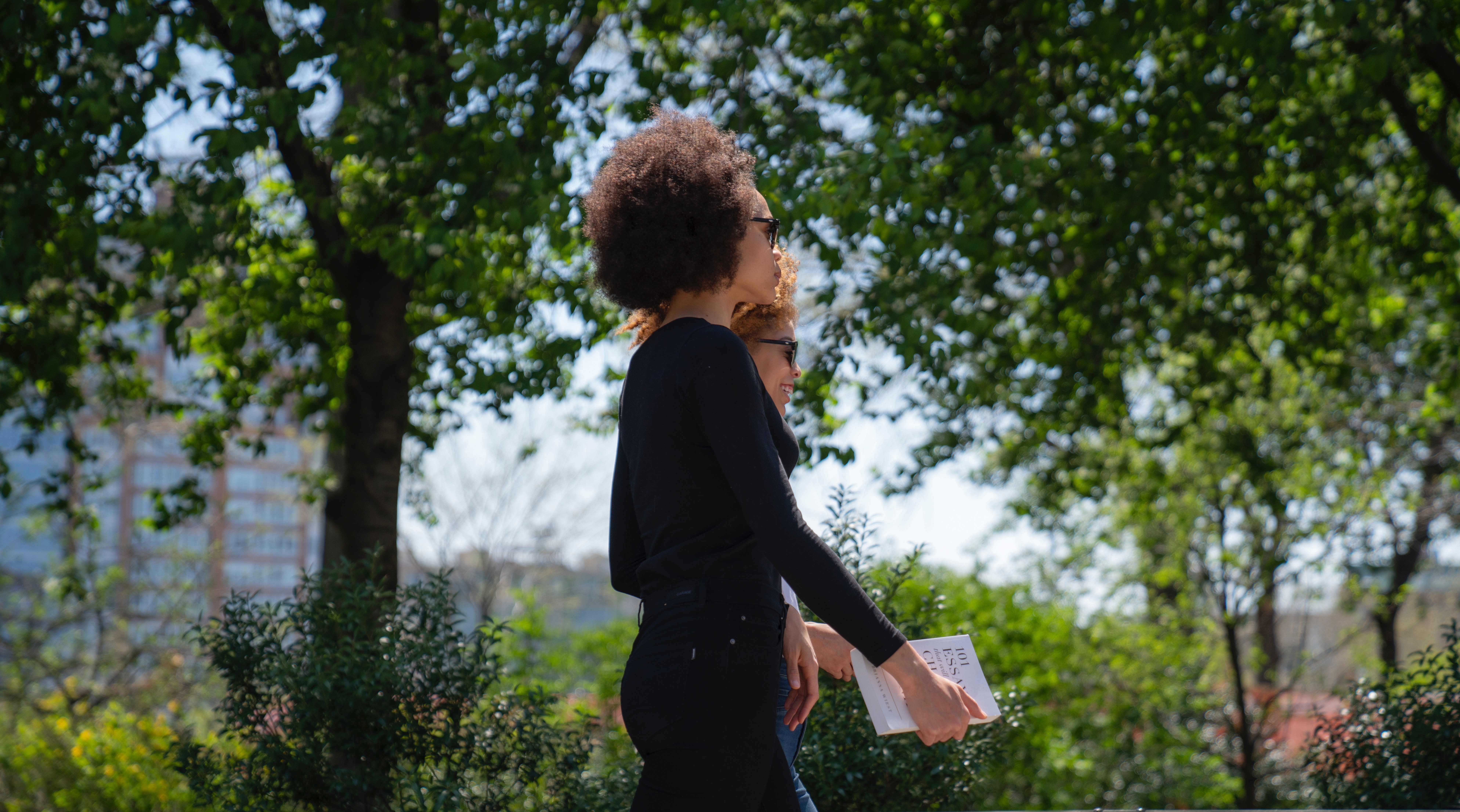Spending Time in Nature Increases Productivity – Try These 5 Routines

Thinking back over your working week, how much time have you spent outside? The majority of our working, social and cultural lives are spent indoors; whether it’s tapping away at our keyboard hunched over a desk, sitting on the underground commuting to work, driving across town or flying across continents, relaxing with a glass of wine in front of Netflix or snatching some brief sleep at the end of the day. Could a bit more time in nature increase your productivity?
Research from Ambius; a British Human Resources consultancy reveals almost 40% of office workers spend a maximum of 15 minutes outside each day. This is considerably less than UN guidelines for the humane treatment of prisoners where it’s explicitly stated inmates must have “at least one hour of suitable exercise in the open air daily”. Ultimately, if you combine this factor with the sedentary nature of our indoor activities, we basically sit indoors for the majority of our lives. This is fundamentally opposed to our evolutionary heritage, whereas humans we are genetically designed to walk up to 12 miles per day.
Benefits for your body
Movement within an outdoor environment offers a multitude of benefits which can be traced back to our physiological predisposition as hunter-gatherers. This powerful dual combination of spending time in nature and gentle movement initiates numerous biochemical and physiological changes throughout your entire body by:
- Improving blood flow to provide oxygen, glucose and metabolic products to the cells; and remove toxic electrons from the cells
- Enriching cardiovascular and immune system so decreases the risk for heart disease, stroke and diabetes
- Strengthening muscles and bones to improve strength and balance
- Aligning your circadian rhythm and reboots our body clock
- Increasing Vitamin D absorption
- Helping to regulate appetite
We can learn valuable lessons from the Japanese art of shrinrin-yoku; otherwise known as forest bathing. This practice was introduced as part of a public health programme in 1982 to enhance health, wellness and happiness. The concept is grounded in physiological and psychological evidence which includes Heart Rate Variability (HRV), systolic and diastolic blood pressure; alongside heart and pulse rate which all increase under stress. These figures are then compared against the psychological subjective evaluation with mood profile, impressions of the forest and evaluation of stress/relaxed state. The physiological and psychological data consistently proves spending time in nature reduces stress and supports wellbeing.
Benefits for your brain
The cognitive functions of the human brain, the main tool for work within our knowledge-based economy, is improved by spending time outdoors. The brain, or more specifically the prefrontal cortex, like any other muscle becomes fatigued. It needs some time out to relax and recover then return fully recharged with resilience boosted to increase productivity and reach optimum performance. Nature offers a calming environment and respite from the constant bombardment of external stimulus. By heading outdoors you are gifting your brain the opportunity to rest and recharge by:
- Supporting working memory, reasoning and learning to improve cognitive performance which increases productivity and energy levels
- Keeping brain cells healthy through the increase of usable brain-derived neurotrophic factor (BDNF) and encourages neurogenesis
- Raising self-confidence and happiness; and conversely alleviates anxiety, stress and depression
- Preventing the onset of dementia and Alzheimer’s disease
5 daily routines to boost your and your team’s performance
Ten minutes is literally all it takes to head outside to adopt a new mindset, generate energy or gain a different perspective, which in turn influences your behaviour, outcomes and emotions. Other famous outdoor enthusiasts include Aristotle, Charles Dickens, Steve Jobs and Barack Obama, who all headed outdoors for fresh air, inspiration and creativity within their work.
“Thoughts come clearly while one walks” Thomas Mann, German Author
The following ideas can easily be integrated into your working routine to support your physical and mental performance:
- Start to schedule one walking meeting each week with your colleagues or clients. Take time to notice how your conversation shifts walking side by side and the dynamic changes.
- Plan to head outdoors for fifteen minutes over lunch. This helps stretch the legs and mind at the same time so you’re refreshed and ready to refocus in the afternoon.
- Factor a mid-afternoon fresh air break between meetings or project work to combat the natural energy dip and return restored to embrace a different creative or mental challenge.
- Integrate an outdoor element to your travel during the daily commute or heading out to other meetings. This provides time to mentally prepare for the day ahead or your meeting; then unwind at the end of the working day.
- Schedule periodic fresh air breaks into your team or organisational training programmes. These can be used to focus on specific areas to encourage individual reflection or generate focused conversation between colleagues or delegates.
So don’t just sit indoors all day! Try these easy steps this week, and see how they affect the performance and productivity of yourself and your team. For more recommendations on how to improve your daily performance, try our Better Life Pulse test and get your personal report.
Interested in hearing more about our coaching services? Leave your contact details below and we’ll be in touch.



